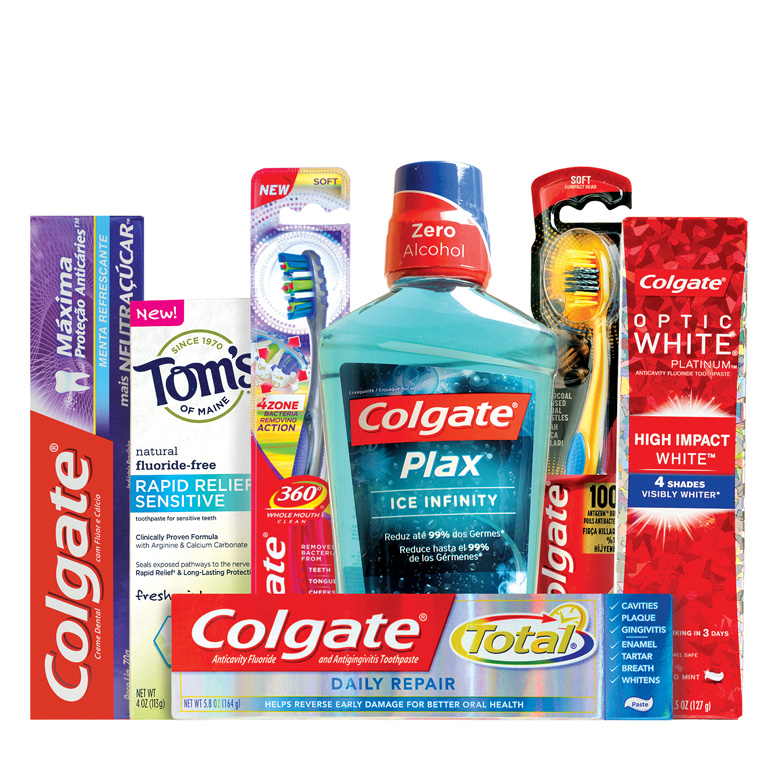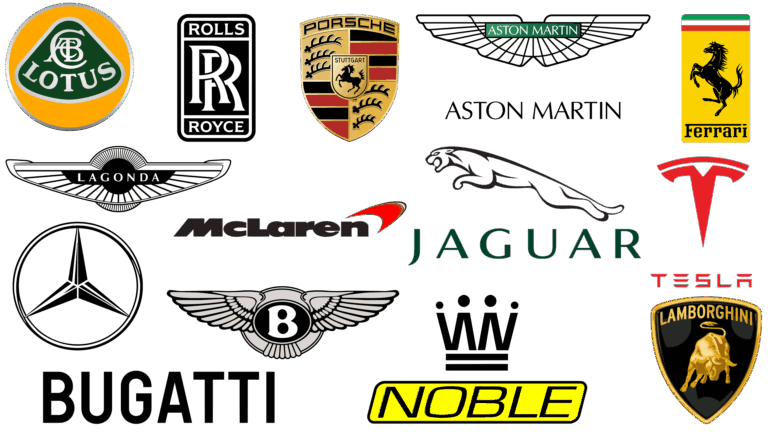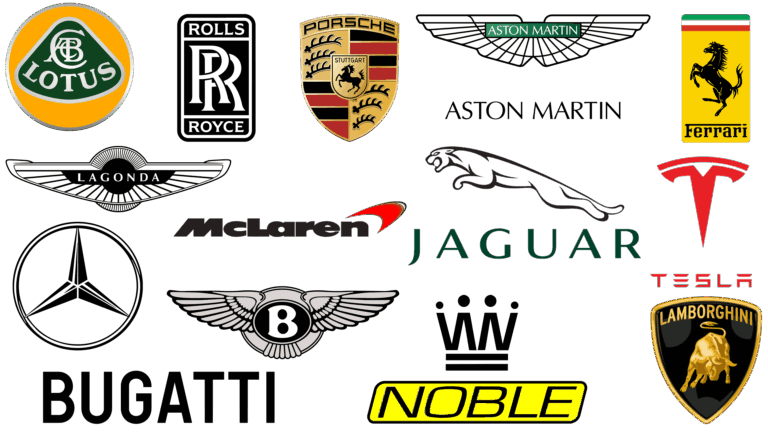Car Tire Brands: A Comprehensive Guide to Choosing the Right Rubber for Your Ride
Car Tire Brands: A Comprehensive Guide to Choosing the Right Rubber for Your Ride cars.truckstrend.com
Tires are arguably the most critical safety component on any vehicle. They are the sole point of contact between your car and the road, directly influencing everything from handling and braking to fuel efficiency and ride comfort. Yet, for many drivers, tires remain an afterthought – a black, round necessity. Understanding the landscape of car tire brands is crucial, not just for performance enthusiasts but for every driver seeking safety, longevity, and optimal vehicle operation. This guide will delve into the world of car tire brands, helping you navigate the vast options and make an informed decision for your vehicle.
The Foundation: What Are Car Tire Brands and Why Do They Matter?
Car Tire Brands: A Comprehensive Guide to Choosing the Right Rubber for Your Ride
A car tire brand represents a manufacturer’s identity, reputation, and commitment to specific technologies, performance characteristics, and market segments. Each brand invests heavily in research and development, materials science, and manufacturing processes to produce tires that meet diverse driving needs and vehicle types.
Choosing the right tire brand isn’t merely about picking a name; it’s about selecting a product engineered to deliver specific attributes:
- Safety: Superior grip in wet and dry conditions, shorter braking distances, and reliable handling.
- Performance: Enhanced cornering, responsiveness, and stability, especially for performance vehicles.
- Fuel Efficiency: Lower rolling resistance reduces the energy needed to move the vehicle, saving on fuel costs.
- Comfort & Noise: A smoother, quieter ride, contributing to overall driving pleasure.
- Durability & Longevity: Tires designed to withstand wear and tear, offering a longer lifespan.

Ignoring tire brand quality can lead to compromised safety, reduced vehicle performance, increased running costs, and a less enjoyable driving experience.
Key Factors to Consider When Choosing a Tire Brand
Before diving into specific brands, it’s essential to understand the criteria that differentiate them and how they align with your needs:
- Performance Characteristics:
- Grip & Handling: How well the tire maintains traction and responds to steering inputs. Brands excel in different areas (e.g., extreme dry grip vs. all-weather capability).
- Braking: The distance required to stop, particularly crucial in emergency situations.
- Wet Weather Performance: Hydroplaning resistance and grip on wet roads.
- Snow/Ice Performance: Essential for winter tires.

- Durability and Longevity (Treadwear Rating): The higher the Uniform Tire Quality Grading (UTQG) treadwear rating, the longer the tire should last, though real-world results vary with driving style and maintenance. Premium brands often offer longer warranties.
- Fuel Efficiency (Rolling Resistance): Tires with lower rolling resistance require less energy to move, leading to better fuel economy. Look for energy-efficient ratings.
- Comfort and Noise: Some brands prioritize a quiet, smooth ride, while others might sacrifice a bit of comfort for ultimate performance or ruggedness.
- Price Point: Tires range from budget-friendly options to premium, high-performance choices. Your budget will influence your brand selection, but remember that cheaper tires might wear out faster or offer less performance.
- Vehicle Type and Driving Style: A sports car requires different tires than an SUV or a city commuter. Your typical driving conditions (highway, city, off-road, track) also dictate the ideal tire type and, by extension, the brand known for excelling in that category.
Leading Car Tire Brands: A Deep Dive
The global tire market is dominated by a few giants, alongside numerous reputable mid-range and budget-friendly manufacturers. Here’s a look at some of the most prominent names:
Premium Brands: Innovation, Performance, and Longevity
These brands are often Original Equipment (OE) suppliers for luxury and performance vehicles, known for cutting-edge technology and superior performance.
- Michelin (France): A global leader renowned for innovation, fuel efficiency, long tread life, and exceptional all-around performance. Michelin tires often come with a premium price tag but justify it with their quality and longevity. They excel in all categories, from high-performance to touring and truck tires.
- Goodyear (USA): An iconic American brand known for its diverse range of reliable tires, strong all-season performance, and advanced technologies. Goodyear is a popular choice for SUVs, trucks, and passenger cars, offering a balance of performance, durability, and comfort.
- Bridgestone (Japan): The world’s largest tire manufacturer, Bridgestone offers a vast portfolio from high-performance to off-road tires. They are known for durability, excellent wet and dry grip, and are often OE on many vehicles.
- Continental (Germany): A leader in safety and handling, Continental tires are often praised for their precise steering response, superior braking, and comfortable ride. They are a popular choice for European luxury and performance cars.
- Pirelli (Italy): Synonymous with high-performance and luxury vehicles, Pirelli is the go-to brand for sports cars and supercars. They deliver exceptional grip, handling, and aesthetic appeal but often have shorter tread life and higher noise levels.
Mid-Range Brands: Value, Reliability, and Broad Appeal
These brands offer a compelling balance of performance, durability, and affordability, often leveraging technologies from their premium parent companies.
- Cooper Tires (USA): Known for robust tires, particularly popular for trucks, SUVs, and all-terrain vehicles. Cooper offers good value and solid performance across various conditions.
- Yokohama (Japan): Offers a wide range of tires, from high-performance to all-season. Yokohama is praised for its sporty handling, good wet grip, and competitive pricing.
- BFGoodrich (USA): A subsidiary of Michelin, BFGoodrich is legendary for its off-road and all-terrain tires, offering rugged durability and aggressive traction. They also produce reliable passenger car tires.
- Hankook (South Korea): A rapidly growing brand known for offering excellent value, good performance, and a diverse product line. Hankook tires are often chosen for their balance of quality and affordability.
- Falken (Japan): Specializes in performance-oriented tires that offer sporty handling and aggressive styling at a competitive price point.
- Kumho Tire (South Korea): Provides a comprehensive range of tires known for good all-around performance and affordability, making them a popular choice for budget-conscious drivers.
Budget Brands: Affordability and Basic Functionality
These brands focus on delivering essential performance at the lowest possible price. While they may not offer the same level of advanced technology, comfort, or longevity as premium brands, they serve a vital market segment.
- Nexen Tire (South Korea): Offers a wide array of budget-friendly tires for various vehicles, known for decent performance for the price.
- General Tire (USA): A subsidiary of Continental, General Tire provides a good balance of quality and affordability, particularly for light trucks and SUVs.
- Sumitomo (Japan): Known for reliable and affordable tires across different categories, offering solid performance for everyday driving.
Understanding Tire Categories and Their Brand Implications
Different tire categories cater to specific driving needs, and certain brands excel in particular niches:
- All-Season Tires: Designed for year-round performance in mild climates. Most major brands offer strong all-season lines (e.g., Michelin Defender, Goodyear Assurance).
- Summer Tires: Optimized for warm weather, offering superior grip and handling on dry and wet roads. Pirelli, Continental, and Michelin are strong in this segment.
- Winter Tires: Essential for cold climates with snow and ice, providing enhanced traction and braking. Bridgestone (Blizzak), Michelin (X-Ice), and Continental (VikingContact) are top contenders.
- Performance Tires: Engineered for sports cars and enthusiasts, prioritizing grip, handling, and high-speed stability. Pirelli, Michelin (Pilot Sport), and Goodyear (Eagle) dominate here.
- Off-Road/AT/MT Tires: Built for rugged terrain, offering aggressive tread patterns and durability. BFGoodrich, Cooper, and General Tire are renowned for these.
- Run-Flat Tires (RFTs): Allow driving for a limited distance after a puncture. Many premium brands offer RFT versions of their popular models.
- Electric Vehicle (EV) Specific Tires: Designed to handle the instant torque, heavier weight, and need for low rolling resistance and quiet operation of EVs. Michelin, Goodyear, and Pirelli are developing specialized EV tires.
How to Choose the Right Tire Brand for You: Practical Advice
- Consult Your Vehicle’s Owner’s Manual: It specifies the original equipment (OE) tire size, speed rating, and load index. Sticking to these recommendations is crucial for safety and performance.
- Assess Your Driving Conditions and Style:
- Climate: Do you need dedicated winter tires, or will all-seasons suffice?
- Roads: Mostly highways, city streets, or rough terrain?
- Driving Habits: Aggressive, moderate, or casual? Do you prioritize fuel economy, comfort, or performance?
- Read Reviews and Ratings: Websites like Tire Rack, Consumer Reports, and various automotive forums offer invaluable insights from professional testers and everyday drivers.
- Talk to Tire Specialists: Reputable tire shops have experts who can recommend brands and models based on your vehicle, budget, and driving needs.
- Balance Cost with Performance: While budget tires are tempting, investing in a mid-range or premium brand often pays off in terms of safety, longevity, fuel efficiency, and driving enjoyment. Consider the "cost per mile" rather than just the initial purchase price.
Challenges and Innovations in the Tire Industry
The tire industry is constantly evolving to meet new demands:
- Sustainability: Brands are investing in eco-friendly materials (e.g., natural rubber, recycled content), reducing rolling resistance for better fuel economy, and promoting tire recycling programs.
- Smart Tires: Integrating sensors to monitor pressure, temperature, tread wear, and even road conditions, providing real-time data to the driver and vehicle systems.
- Electric Vehicle (EV) Tires: Developing tires that can handle the heavier weight and instant torque of EVs while minimizing range loss and road noise.
- Airless Tires: Futuristic concepts like Michelin’s Uptis aim to eliminate flats and maintenance, though widespread adoption is still years away.
Car Tire Brands: Estimated Price & Key Characteristics Table
It’s crucial to note that tire prices vary significantly based on size, specific model, retailer, and ongoing promotions. The table below offers a general price tier and key characteristics for major brands to provide a comparative overview.
| Brand Name | Typical Price Tier | Key Strengths / Characteristics |
|---|---|---|
| Michelin | Premium | Exceptional all-around performance, longevity, fuel efficiency, innovation, quiet ride. |
| Goodyear | Premium | Strong all-season, durable, innovative technologies, diverse product range. |
| Bridgestone | Premium | Durability, excellent wet/dry grip, OEM supplier, wide range from performance to truck. |
| Continental | Premium | Superior safety, precise handling, comfortable ride, strong braking performance. |
| Pirelli | Premium | High-performance, luxury vehicle focus, sporty handling, aggressive styling. |
| Cooper | Mid-Range | Great value, robust for trucks/SUVs, strong all-season/all-terrain capabilities. |
| Yokohama | Mid-Range | Sporty handling, good wet grip, competitive pricing, broad appeal. |
| BFGoodrich | Mid-Range | Legendary off-road/all-terrain, rugged durability, adventurous appeal. |
| Hankook | Mid-Range | Excellent value, balanced performance, growing market presence, modern designs. |
| Falken | Mid-Range | Performance-oriented, sporty aesthetics, good value for enthusiasts. |
| Kumho | Mid-Range | Affordable, reliable performance for everyday driving, wide product range. |
| Nexen | Budget | Cost-effective, decent performance for the price, suitable for general commuting. |
| General Tire | Budget/Mid | Good value, reliable for everyday driving, popular for light trucks and SUVs. |
| Sumitomo | Budget | Affordable and dependable, good basic performance, suitable for budget-conscious drivers. |
Note: Price tiers are relative within the tire market. A "Premium" tire will always be more expensive than a "Budget" tire of the same size and type, but prices can still vary significantly within each tier.
Frequently Asked Questions (FAQ) about Car Tire Brands
Q1: What’s the main difference between premium and budget tire brands?
A1: Premium brands invest more in R&D, advanced materials, and manufacturing processes, leading to superior performance (grip, braking), longer tread life, better fuel efficiency, and a more comfortable/quieter ride. Budget brands prioritize affordability, offering acceptable but generally lower performance across these metrics.
Q2: How do I find the right tire size for my car?
A2: Your tire size is typically found on a sticker inside your driver’s side door jamb, in your car’s owner’s manual, or on the sidewall of your current tires. It’s a series of numbers and letters (e.g., P205/55R16 91V).
Q3: How long do tires usually last, regardless of brand?
A3: The lifespan varies greatly based on the tire’s treadwear rating, driving habits, road conditions, and maintenance. Generally, tires can last anywhere from 40,000 to 80,000 miles (64,000 to 128,000 km) or 5-6 years, whichever comes first. Even if they have tread, tires older than 6-10 years should be inspected by a professional due to rubber degradation.
Q4: Are brand-specific tires for electric vehicles (EVs) really necessary?
A4: While not strictly "necessary" (you can use standard tires), EV-specific tires are optimized for the unique demands of EVs. They often feature lower rolling resistance for extended range, stronger construction to handle heavier battery packs, and specialized tread patterns for quieter operation due to the lack of engine noise.
Q5: Should I always stick to the OEM (Original Equipment Manufacturer) tire brand that came with my car?
A5: Not necessarily. While OEM tires are optimized for your vehicle’s specific characteristics, the aftermarket offers many excellent alternatives. You might find a different brand or model that better suits your driving style, climate, or budget, often with superior performance in certain areas (e.g., better wet grip or longer tread life). Always ensure the replacement tires meet or exceed the vehicle’s recommended speed and load ratings.
Conclusion
Choosing the right car tire brand is a critical decision that impacts your safety, driving experience, and wallet. By understanding the different brands, their specialties, and the key factors influencing tire performance, you can make an informed choice that aligns with your vehicle’s needs and your personal driving style. Invest wisely in your tires – they are your car’s most important connection to the road.





